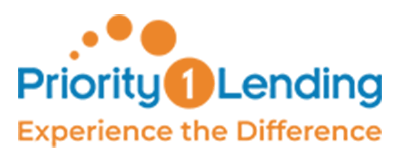The FHA loan program can help you buy or refinance a house even if you have a bad credit score. FHA home loans are backed by the Federal Housing Administration, which allows lenders like Priority 1 Lending to offer loans to customers who may have lower credit scores.
What is the lowest credit score for FHA loans?
At Priority 1 Lending, our minimum FHA loan credit scores depend on whether you want to buy a home or refinance a home.
- We can often accept a minimum credit score as low as 500 when you want to buy a home with an FHA loan.
- We can often accept a minimum credit score as low as 550 when you want to refinance and get cash from your home’s equity with an FHA loan.
- We can often offer an easy credit score qualification when you want to refinance a house with an FHA loan.
If you have a lower credit score and smaller down payment, FHA loans may be more affordable than conventional loans. Lenders often require a credit score of at least 620 and a minimum down payment of 5% to qualify for a conventional loan. Keep in mind you will still need to meet credit, income, and financial requirements to get approved for an FHA loan.
Can you refinance an FHA loan with bad credit?
FHA homeowners with lower credit scores may still be able to refinance using the streamline program. This program allows you to replace your current FHA loan with a new FHA loan that has a lower rate or better terms. These refinances feature less paperwork, more flexible credit standards, and faster closings.
At Priority 1 Lending, we help FHA homeowners refinance with an easy credit qualification. You will need to meet our financial requirements to get your refinance approved. You need to be current on your mortgage payments and have a recent history of paying your monthly bills on time. Refinancing also must result in a real benefit, such as lowering your interest rate which reduces your monthly mortgage payment. By refinancing, the total finance charges may be higher over the life of the loan.
Does a lower credit score affect your FHA closing costs?
Your credit score might affect your closing costs if you purchase discount points. Discount points are a way for you to buy a lower rate on your FHA loan. If your credit score results in a higher rate, you may decide to buy discount points to lower it. Sometimes you can add the costs of points to your loan amount. Other times you may be required to pay for them at closing.
FHA loans after bankruptcy
Having a bankruptcy in your financial history can also affect your credit score. The good news is the FHA loan program can still help you buy a home after bankruptcy and it can be easier to get an FHA loan after bankruptcy compared to a conventional loan. The requirements are different depending on the type of bankruptcy:
FHA loans after Chapter 7 bankruptcy
If you've filed and been discharged from Chapter 7 bankruptcy, you can still apply for an FHA loan under specific conditions. If two or more years has passed since your bankruptcy has been discharged and you have "reestablished good credit" or have not incurred new credit obligations, you can apply for an FHA loan. You will still need to meet the lender's other credit, financial, and income requirements to be approved.
You can still apply for an FHA loan after Chapter 7 bankruptcy if more than 1, but less than 2 years have passed, although you will need to meet additional requirements. These include demonstrating that the bankruptcy was caused by circumstances out of your control and providing recent documentation of your ability to responsibly maintain your finances.
FHA loans after Chapter 13 bankruptcy
Since Chapter 13 bankruptcies involve a repayment plan, some borrowers may be eligible for an FHA loan before the repayment plan is complete. If a year has passed and you have made all payments in full and on time, you can apply for an FHA loan. This may require written documentation from the bankruptcy court with their approval. Just like Chapter 7 bankruptcy, you will still need to meet your lender's credit, financial and income standards in order to be approved.

